Transcript
Athens, 5th century B.C.: times of political unrest! There was a war with Sparta and the city state had constantly changing forms of rule, from democracy to oligarchy.
Me (in Greek toga looking at the ancient Athens skyline): “Remarkable how philosophers are often considered subversive elements in politically unstable times!”
Yiri (also in toga): “Makes sense! Politicians don’t want people to think for themselves!”
Socrates’ life
The Life of Socrates (469-399 B.C.)
Socrates was born in Athens, 469 B.C., to father Sophronicus and mother Phaenarate. His father was a stonemason, his mother a midwife. She may have been his inspiration for the discussion technique he later called The Midwife Technique.
Socrates (to a pupil): “Knowledge must be brought forth in the same way a midwife assists in birthing! Thinking hurts! Push! Push! Think harder! Keep breathing!”
Socrates grew up during Athens’ heyday. In 431 B.C., when he was 38, the Peloponnesian war broke out, which lasted 27 years. By the end of the war, Socrates was 65, Athens was defeated by Sparta and greatly impoverished.
Socrates took part in three campaigns against Sparta: at Potidaea (432 B.C.), at Amphipolis (424 B.C.) and at Delium (424 B.C.).
Socrates spread his ideas in the marketplace:
Socrates (standing in the square): “What is knowledge? Our governors think they are wise, but are they really?”
Athenian governors: “Make him shut up! Don’t we have enough problems as it is?”
Socrates married Xanthippe, who was much younger. They had three sons.
Socrates (embracing his family): “A feisty wife, but she keeps me on my toes!”
Socrates’ ideas (for instance About The Ideal State and About Virtue) were written down by his pupil Plato.
In 399 B.C., when he was 70, Socrates was prosecuted and sentenced.
Athenians: “He’s corrupting our youth! He laughs at the gods! He doesn’t abide by the law!”
Socrates chose poison over exile and died among his friends.
Socrates (holding a cup of poison): “A soldier does not run away in the face of death!”
Socrates’ philosophy
Socrates’ d̶o̶c̶t̶r̶i̶n̶e̶ philosophy
Socrates: “I don’t teach a ‘doctrine’ - doctrines are for people who can’t think for themselves! ‘Philosophy’ is better! Philo = love; sophia = wisdom.”
Socrates often spoke in the agora, the center of public and political life in Athens.
Socrates: “I know only one thing: that I know nothing! …but that’s more than most people know!”
At the heart of Socrates’ philosophy lies the admonition: KNOW THYSELF
Socrates: “How can anyone know anything if they don’t know themselves? That’s why this is the core of my philosophy: KNOW YOURSELF - how? Keep discussing! Be critical! Look for truth! A life that does not evaluate itself critically, is not worth living!”
Socrates: “I am a hornet! And Athens is a slow horse!”
(Picture of a horse being bugged by a pesky insect)
Athenians: “The arrogance! It doesn’t matter what you say, he will always go against it… like a sophist! Does he have any actual views of his own?”
Socrates: “I sure do! I believe in Truth, Beauty and Justice!”
Questions for further discussion
Socrates’ core motto is: ‘Know yourself’. But how can you know that you know yourself? Have you ever thought yourself to be one thing, only to find out that you were wrong about yourself?
What is a ‘sophist’? Why do the Athenians call Socrates this?
Socrates chose death by poison over exile. What do you think of his choice? What would you have done?


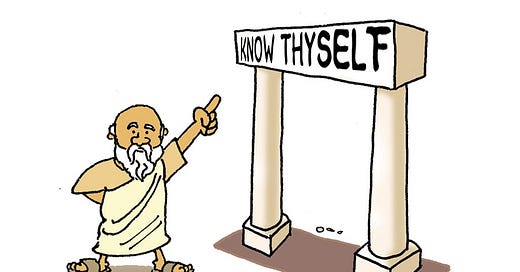



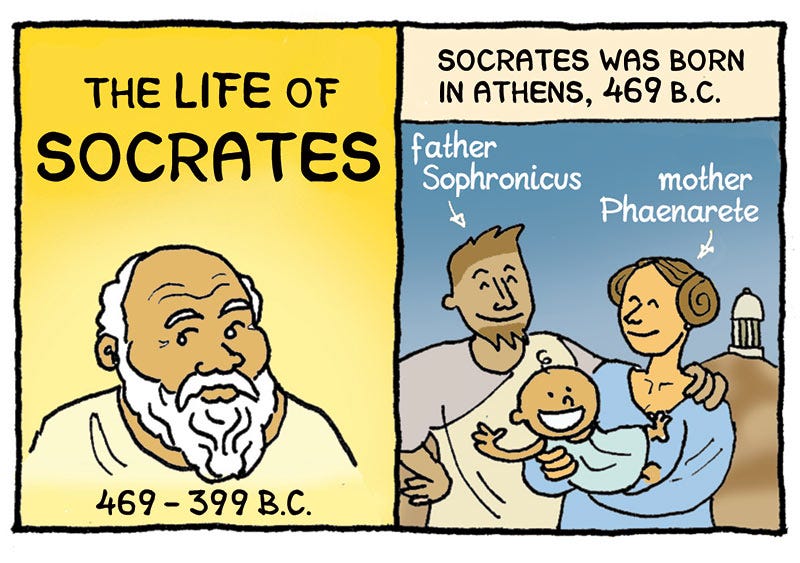
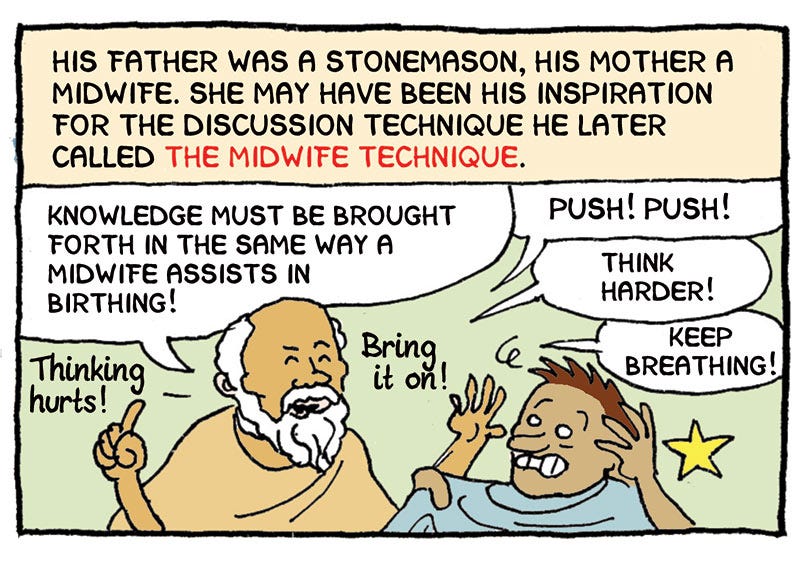
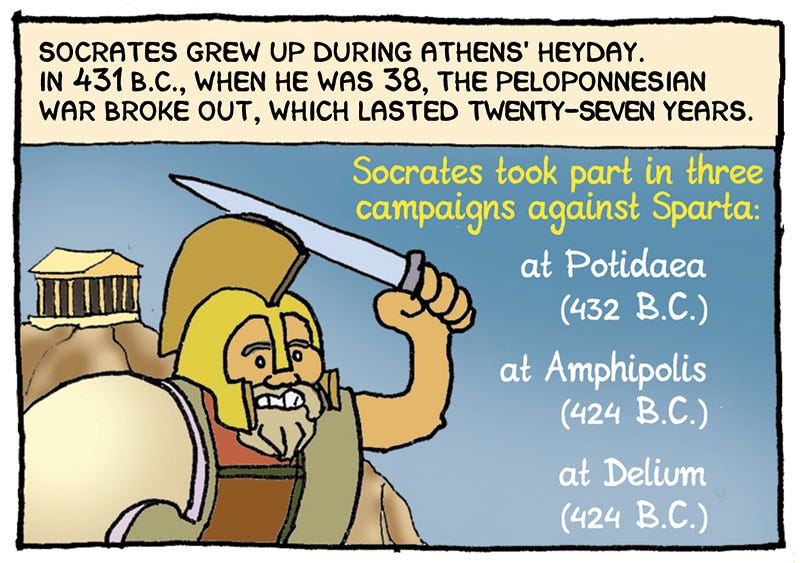
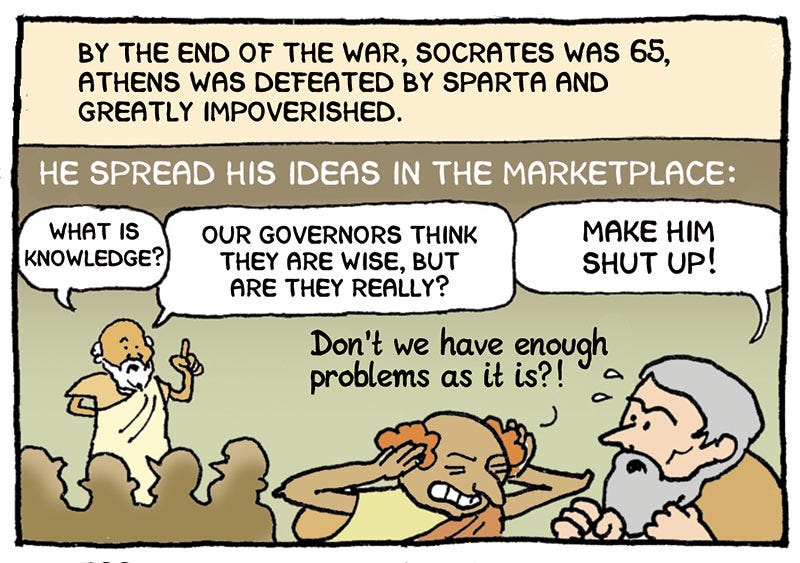


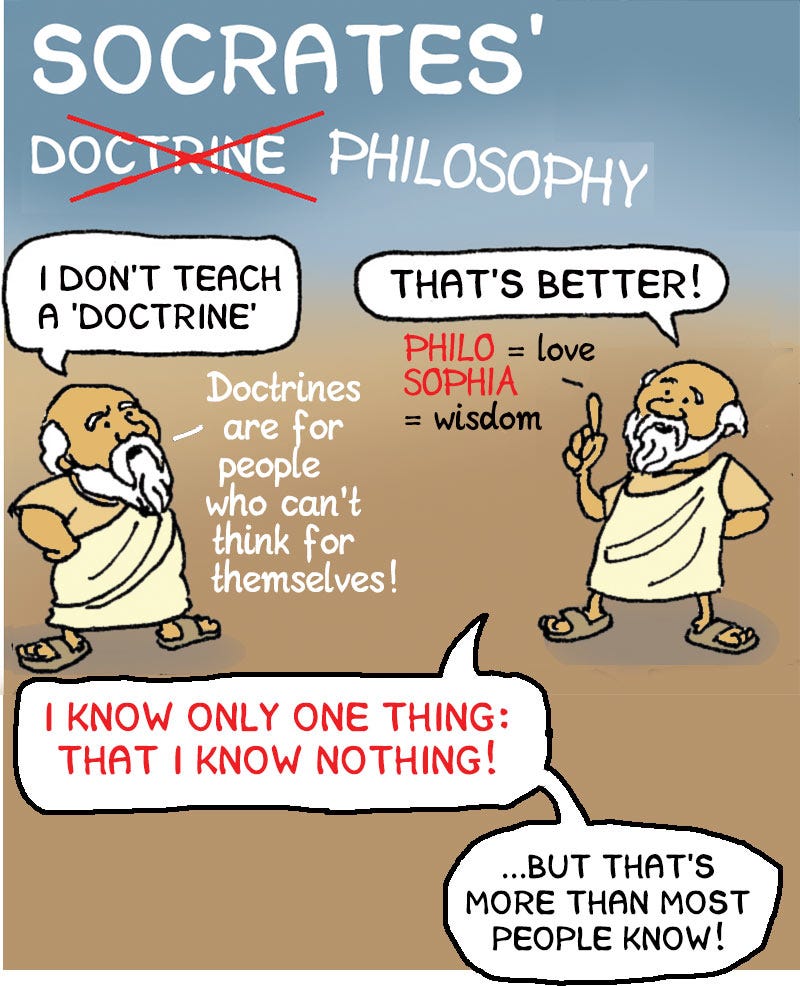


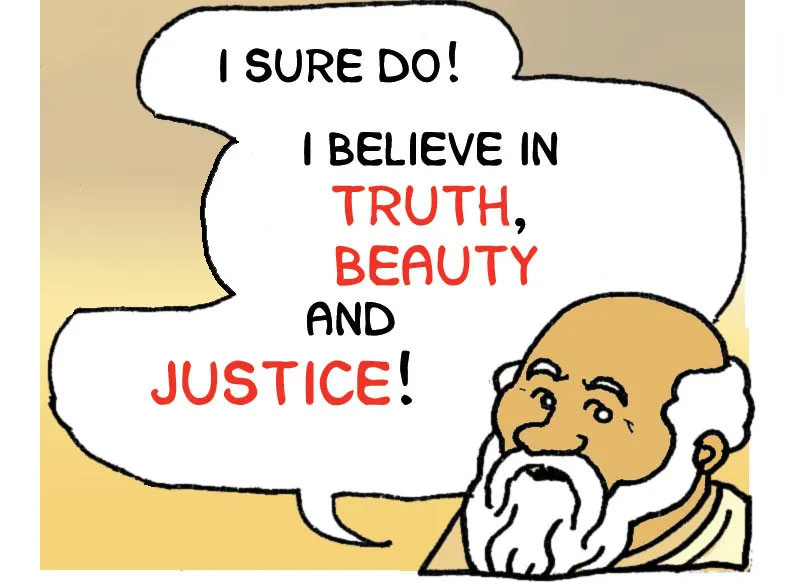

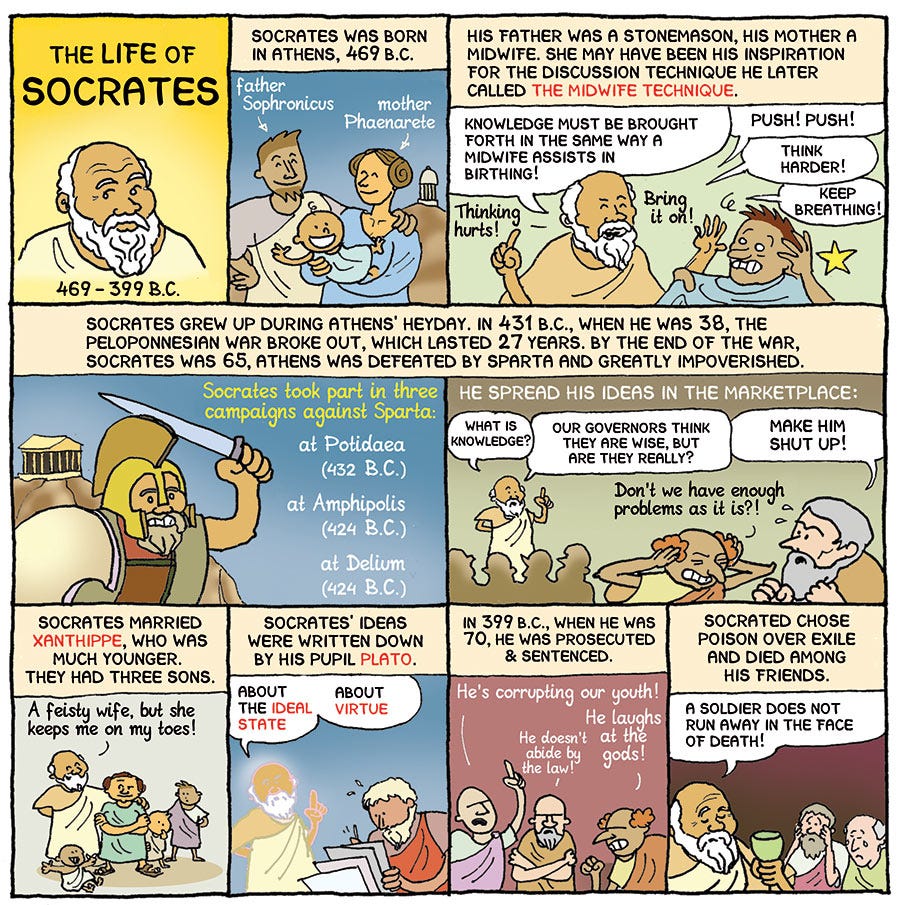

This was lovely. I considered the question for a while and I think I would choose exile. I’m probably romanticizing, but as an introvert the quiet isolation sounds kind of nice.